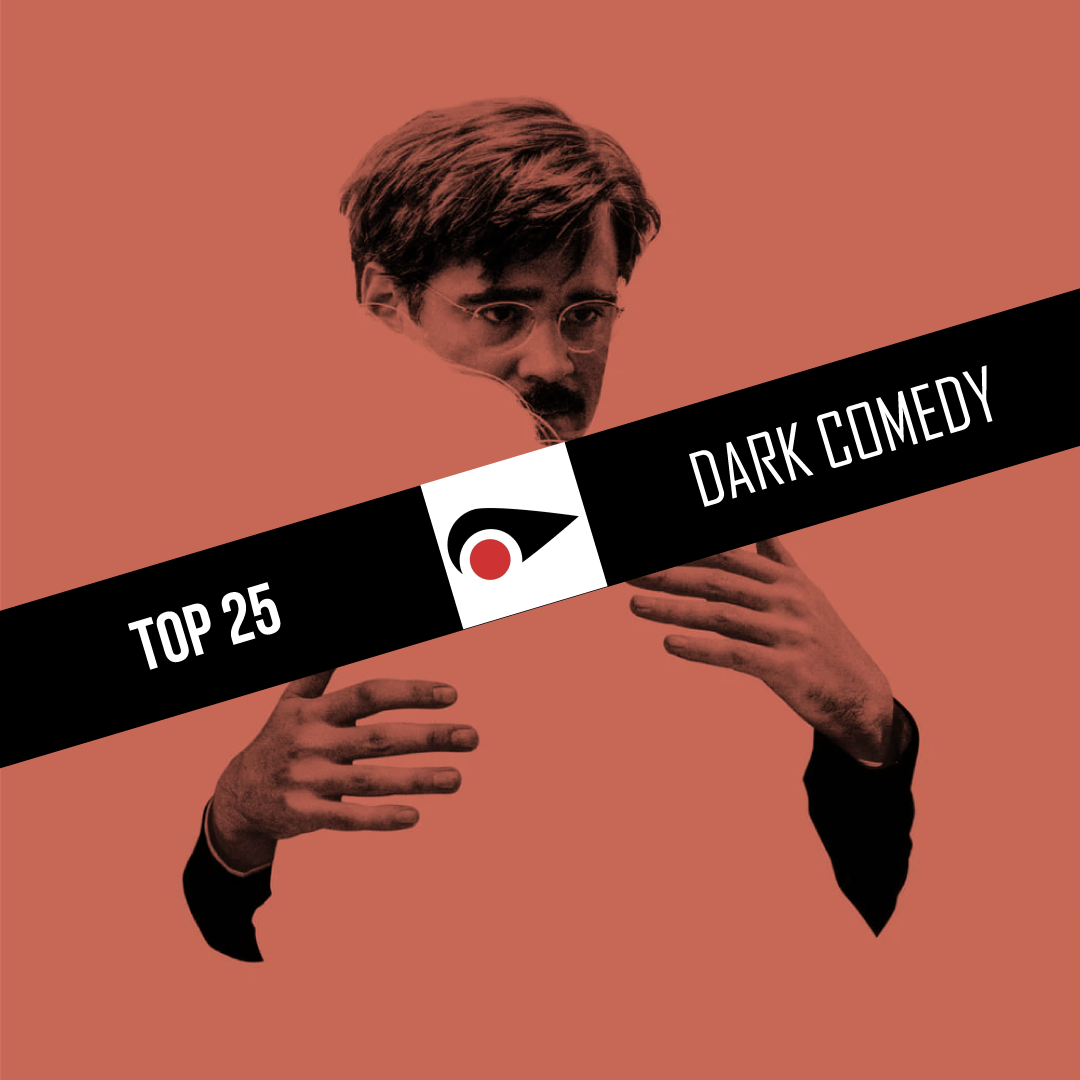
And here we are, arriving at the final 5 films on this list of dark comedies. Let’s begin with…
5. “Carnage”
4. “The Great Dictator”
“The Great Dictator” (1940), directed and starring Charlie Chaplin, is a political satire and one of the earliest dark comedies in cinema. Released when the war was still relatively distant in the United States, the film boldly mocks Nazism and Adolf Hitler, given the contemporaneity of the events. Chaplin, through his dictator character, provides a reflection on the madness of totalitarianism, demonstrating that humor can be a powerful tool for social criticism.
3. “Arsenic and Old Lace”
“Arsenic and Old Lace” (1944), directed by Frank Capra, is a classic dark comedy that combines black humor with slapstick. Released during World War II, the film provides a breath of levity with its plot involving two elderly ladies with a “hilarious” secret. The playful tone and Cary Grant’s performance contribute to making the film an iconic comedy of the era, as does the noir performance by Peter Lorre. Haven’t seen it yet? “CHARGEEEEEEEE!”
2. “Fargo”
1. “Dr. Strangelove or: How I learned to stop worrying and love the bomb”
Inevitably, it’s time for Stanley Kubrick.
“Dr. Strangelove or: How I Learned to Stop Worrying and Love the Bomb” (1964), directed by the American master, is arguably the masterpiece of the dark comedy genre (at least, it is for us). The screenplay, written by Stanley Kubrick, Terry Southern, and Peter George, is an example of comedic and satirical brilliance. The dialogues are sharp and maintain a perfect balance between humor and drama. Beyond its comedic aspect, the film provides a profound social commentary on the fear and paranoia associated with nuclear war. The story unfolds in a context of international tension, highlighting the dangers of war escalation. Peter Sellers’ iconic performance in various roles contributes to the film’s caustic and sarcastic tone.
“Dr. Strangelove” paved the way for a new form of storytelling that uses black humor to explore serious themes, influencing subsequent genres and, just as Chaplin had done before, proving that comedy can be a powerful tool for critique and social change.
For a quick recap of this list, click on the next page.